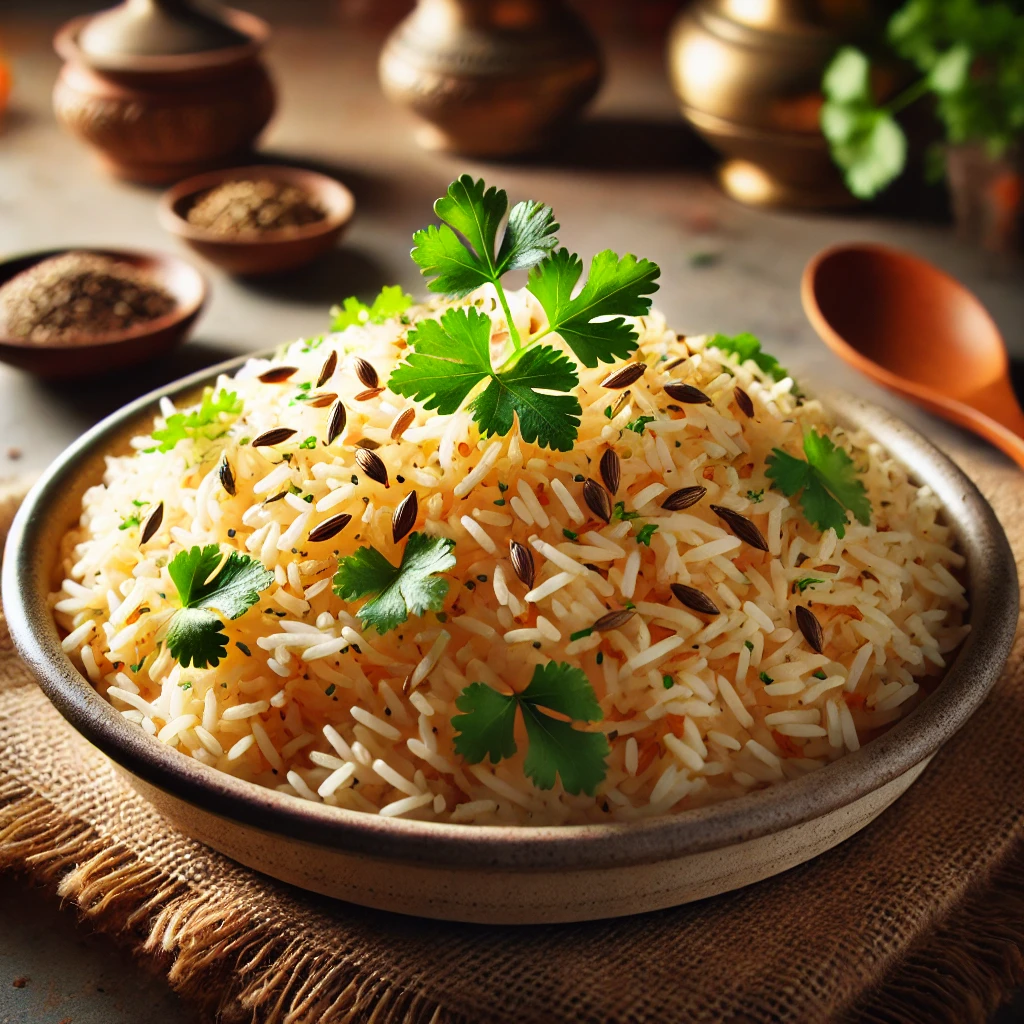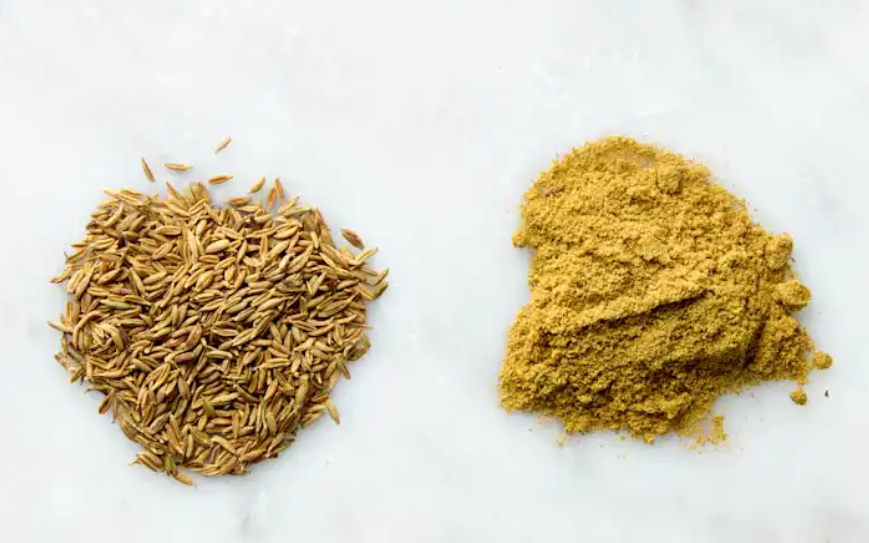Cumin, a humble spice with an unmistakable earthy aroma and warm, slightly bitter taste, has been a kitchen staple for centuries. But beyond its role in flavoring dishes, cumin boasts an impressive range of health benefits backed by scientific research. Whether you’re using it in cooking or considering it for its medicinal properties, this guide will walk you through everything you need to know about cumin—its origins, active ingredients, health benefits, and even who should exercise caution when consuming it.
The Origin of Cumin
Cumin (Cuminum cyminum) belongs to the Apiaceae family, which also includes parsley, carrots, and celery. It has been cultivated for thousands of years, with its earliest use dating back to ancient Egypt. Historical evidence suggests that cumin was used as a spice, a medicinal remedy, and even in the mummification process.
Cumin in Ancient Cultures
- Egypt: Used for both culinary and medicinal purposes, as well as in embalming.
- India: A key spice in Ayurvedic medicine and a staple in Indian cuisine.
- Middle East & Mediterranean: Commonly used in spice blends like za’atar and ras el hanout.
- Spain & Latin America: Introduced through trade and became essential in regional cooking.
Today, cumin is grown in various regions, including India (the largest producer), Iran, Turkey, and China.
Active Ingredients in Cumin
Cumin owes its health benefits to its unique composition of active compounds, including:
- Cuminaldehyde: A powerful antioxidant with antimicrobial properties.
- Thymol: A natural antiseptic that supports digestion and immune health.
- Terpenes and Phenolic Compounds: Known for their anti-inflammatory and antioxidant effects.
- Essential Oils: Promote digestive health and improve metabolism.
These bioactive components make cumin a valuable ingredient not only in cooking but also in traditional and modern medicine.
Health Benefits of Cumin
1. Aids Digestion
Cumin has been used for centuries to support digestive health. Research suggests it stimulates digestive enzymes, which help break down food and improve nutrient absorption. A study published in the Middle East Journal of Digestive Diseases found that cumin extract significantly reduced symptoms of irritable bowel syndrome (IBS), including bloating and discomfort.
2. Supports Weight Loss
Cumin may assist in weight management by improving metabolism and reducing fat accumulation. A study in the Complementary Therapies in Clinical Practice journal showed that overweight women who consumed cumin powder daily experienced significant reductions in weight, body mass index (BMI), and waist circumference.
3. Regulates Blood Sugar Levels
Cumin may help manage blood sugar levels, making it beneficial for individuals with diabetes. Research published in the Journal of Clinical Pharmacy and Therapeutics indicated that cumin supplementation led to improved insulin sensitivity and lower fasting blood sugar levels.
4. Improves Cholesterol Levels
Cumin has been found to enhance lipid profiles by reducing LDL (“bad”) cholesterol and increasing HDL (“good”) cholesterol. A study in the Iranian Journal of Basic Medical Sciences showed that cumin extract significantly reduced total cholesterol and triglyceride levels in participants with high cholesterol.
5. Contains Powerful Antioxidants
The antioxidants in cumin help neutralize free radicals, reducing oxidative stress and lowering the risk of chronic diseases. These antioxidants also contribute to better skin health by preventing premature aging and improving skin elasticity.
6. May Have Anticancer Properties
Preliminary research suggests that cumin possesses anticancer properties due to its high levels of antioxidants and anti-inflammatory compounds. Studies on animals have shown that cumin extract may help slow the growth of cancer cells, particularly in the colon and liver.
How to Use Cumin in Your Diet
Cumin is incredibly versatile and can be used in various ways:
- Whole Seeds: Toast them for a nuttier flavor before adding them to dishes.
- Ground Powder: Mix into soups, stews, and spice blends.
- Cumin Tea: Brew cumin seeds in hot water for a digestive tonic.
- Supplement Form: Available in capsules or extracts for medicinal use.
Delicious Cumin-Based Recipes
1. Cumin-Spiced Lentil Soup

Ingredients:
- 1 cup lentils
- 1 onion, chopped
- 2 cloves garlic, minced
- 1 tsp cumin powder
- 1 tsp turmeric
- 4 cups vegetable broth
- Salt & pepper to taste
Instructions:
- Sauté onion and garlic in olive oil.
- Add cumin, turmeric, and lentils.
- Pour in broth and simmer for 25 minutes.
- Season with salt and pepper. Serve warm.
2. Cumin-Infused Rice

Ingredients:
- 1 cup basmati rice
- 2 cups water
- 1 tsp cumin seeds
- 1 tbsp butter or ghee
- Salt to taste
Instructions:
- Heat butter in a pan, add cumin seeds.
- Stir in rice, coat with cumin butter.
- Add water, cover, and simmer until rice is cooked.
Who Should Avoid Cumin?
While cumin is generally safe, certain groups should be cautious:
1. People with Bleeding Disorders
Cumin may slow blood clotting, increasing the risk of bleeding, especially in individuals taking anticoagulants.
2. Pregnant Women
In high doses, cumin may stimulate uterine contractions. While moderate use in cooking is safe, pregnant women should avoid excessive consumption.
3. Individuals with Low Blood Sugar
Since cumin can lower blood sugar levels, those on diabetes medication should monitor their levels to prevent hypoglycemia.
4. Allergy-Prone Individuals
Some people may be allergic to cumin, experiencing symptoms like skin rashes, difficulty breathing, or swelling.
Final Thoughts
Cumin is more than just a spice; it is a powerhouse of health benefits backed by clinical research. Whether you’re adding it to your meals for flavor or taking it as a supplement for its medicinal properties, cumin can be a valuable part of a balanced diet.
By understanding its uses, health benefits, and precautions, you can make the most out of this ancient spice. Have you tried incorporating cumin into your diet? Let us know in the comments!
References:

